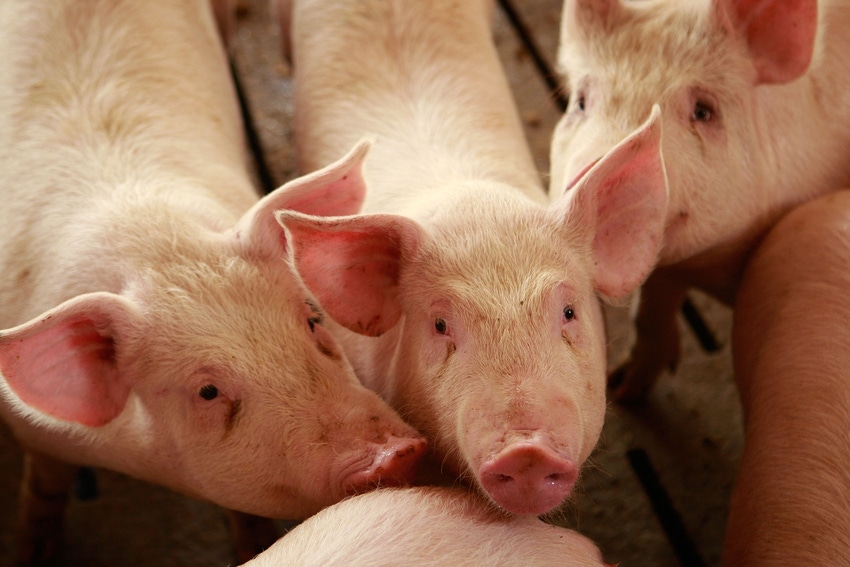WHO calls for ban on prevention uses of antibiotics
Animal groups say ban on disease prevention uses of antibiotics in food-animal production would be ill-advised and wrong.
November 7, 2017

Farmers and the food industry should stop using antibiotics routinely to promote growth and prevent disease in healthy animals, according to new recommendations from the World Health Organization (WHO).
A systematic review published in The Lancet Planetary Health found that interventions that restrict antibiotic use in food-producing animals reduced antibiotic-resistant bacteria in these animals by up to 39%. “This research directly informed the development of WHO’s new guidelines,” WHO said.
In some countries, approximately 80% of total consumption of medically important antibiotics is in the animal sector, largely for growth promotion in healthy animals, WHO said in its announcement. Healthy animals should receive antibiotics only to prevent disease if it has been diagnosed in other animals in the same flock, herd or fish population, the agency recommended.
WHO said, where possible, sick animals should be tested to determine the most effective and prudent antibiotic to treat their specific infection. Antibiotics used in animals should be selected from those WHO has listed as being “least important” to human health and not from those classified as “highest priority, critically important.” These antibiotics are often the last line, or one of limited treatments, available to treat serious bacterial infections in humans.
"Scientific evidence demonstrates that overuse of antibiotics in animals can contribute to the emergence of antibiotic resistance," said Dr. Kazuaki Miyagishima, director of the department of food safety and zoonoses at WHO. "The volume of antibiotics used in animals is continuing to increase worldwide, driven by a growing demand for foods of animal origin, often produced through intensive animal husbandry.”
The National Pork Producers Council (NPPC) said the ban being advocated by WHO would be “ill-advised and wrong.”
“Denying pigs, cows and chickens necessary antibiotics would be unethical and immoral, leading to animal suffering and possibly death, and could compromise the nation’s food system,” NPPC said.
NPPC explained that pork farmers are taking steps to ensure that they’re using antibiotics strategically and responsibly. Specifically, farmers are complying with an FDA directive that prohibits the use of antibiotics important to human medicine for promoting animal growth and that requires in-feed and water uses of those same antibiotics to be under veterinary prescription.
“Prevention uses of antibiotics involve administering antimicrobial drugs to animals that aren’t exhibiting clinical signs of disease but that likely will get disease if a drug isn’t administered,” NPPC said. "Veterinary involvement in the decision-making process associated with the use of medically important antimicrobial drugs not only is an important aspect of ensuring appropriate use, but for feed and water uses, it’s the law. Additionally, using antibiotics to prevent disease, in most cases, supplants the need to use more potent medically important antibiotics to treat disease.”
NPPC added that the U.S. pork industry has a goal to reduce the need for antibiotics and has devoted time and resources to that end, including adopting good antibiotic stewardship practices and studying alternatives to antibiotics.
“Simply reducing on-farm uses of antibiotics, as the WHO suggests, however, likely would have no effect on public health and would jeopardize animal health,” NPPC said. “Its call for stopping the use of antibiotics that are critically important in human medicine for treating infected animals is antithetical to pork farmers’ and veterinarians’ moral obligation to care for their pigs.”
The Animal Agricultural Alliance echoed similar concerns with WHO's recommendations.
"Animal agriculture believes antibiotics should be used judiciously – the right medicine at the right dose and for the correct amount of treatment time – but judicious use is not necessarily synonymous with reduced use. Withholding treatment from sick animals to meet reduced use targets is neither judicious nor humane. The ability to treat and prevent disease is vitally important in both human and animal health," the group said in a statement.
The Animal Ag Alliance also noted that research has shown that the proper use of antibiotics can keep food animals healthy and reduce the potential for harmful bacterial contamination of finished meat products. The alliance added that there are several layers of protection to ensure that the use of antibiotics for animals does not affect human health.
To find out more about the collaboration among farmers, veterinarians and the Food & Drug Administration, view the new website – www.togetherabx.com – created by groups that are dedicated to ensuring animal health.
You May Also Like


